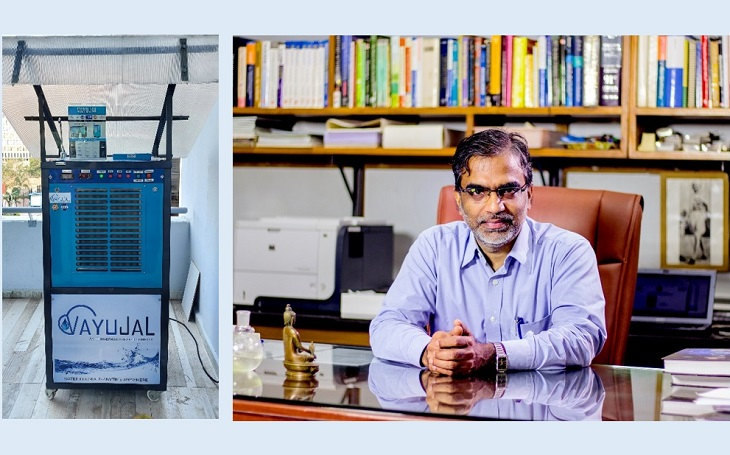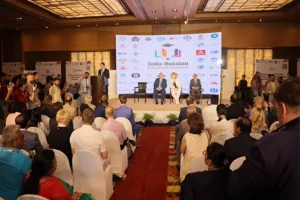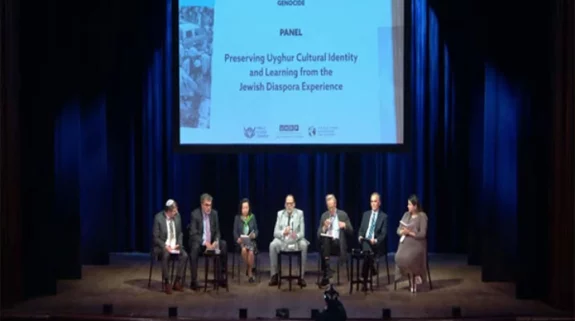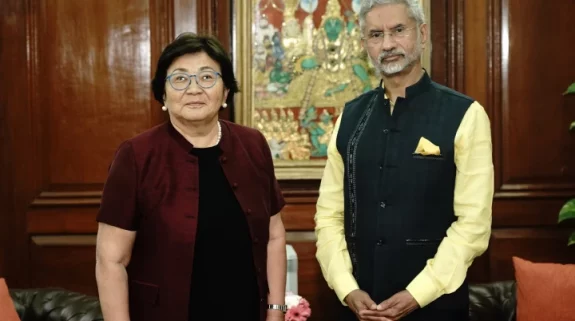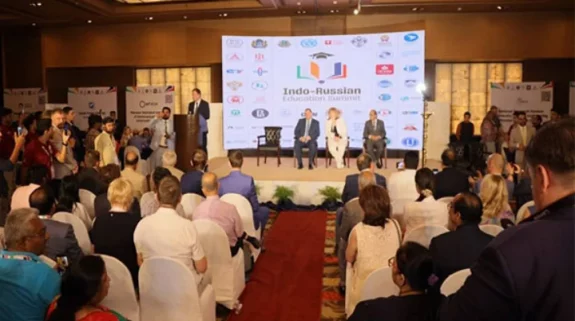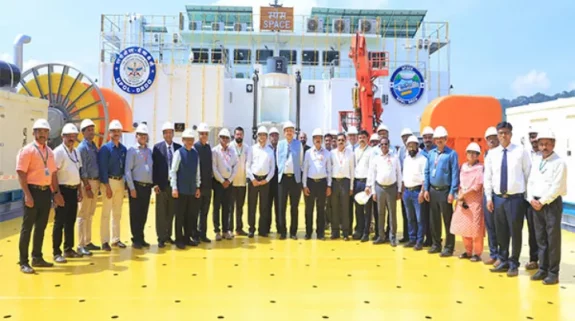Clean water initiatives driven by IIT-M are making their way to the people, successfully bring the lab to the field. In a unique collaboration between professors and students, research from the labs is changing people’s lives.
One such innovation is the Atmospheric Water Generator (AWG), which has been created using nano-technology.
Prof. K. VijayRaghavan, Principal Scientific Adviser to the Government of India, says: "Safe and readily-available water is the mark of a healthy society and also the primary responsibility of those working in public health. The VayuJal technology is an example by innovators to solve real-world problems."
He adds that scaling up the availability of such water technologies will help improve the health of people.
Clean Drinking Water
The Department of Chemistry at IIT-M is working on water harvesting, installing atmospheric water machines, removing arsenic from water and conducting other drinking water-related research.
Professor Thalappil Pradeep, Institute Professor, says: “Our technologies on clean water have reached 10 million people. If water is not there, what will we do?”
Talking about the AWG, which makes water from air, he says researchers had to first create a surface similar to grass with nano-scale features. It is this feature which using further technologies provides clean drinking water.
He adds that this technology can provide high quality drinking water but is expensive as it needs electricity. However the important point is, “where we do not have water, we can use this technology.” The department Is also working on tapping solar energy so that this process becomes viable.
“Eventually, we will become solar one day. These water generating machines can be put in places like anganwadis and schools that are remote and face water shortage. Also, these are sturdy machines and last long,” Says Thalappil. On the other hand, water of such high quality is required by hospitals and labs, which are a potential market.
Thalappil says: “Our idea is to take the technology to as many people as quickly as possible.”
A New Ecosystem Grows
Translating laboratory research into workable products or services remains a challenge. Also, such research has to become commercially viable so that people can be benefitted.
IIT-M and its various departments are working with startups to bring such technologies to people. Thalappil says his department is working with students on workable ideas which can be incubated and implemented on ground.
Giving an insight into how the ecosystem works, Thalappil says: “We initiate these start-up companies with our students. Many of them instead of doing a PhD, prefer to start a company with our help and implement research for public benefit.” He adds that as the startups are run by students, they have more patience, more energy and less expectations.
He highlights that an entirely new ecosystem of research, incubating, mentoring and initiating a start-up has grown in the last few years.

Another Atmospheric Water Generator (Left) and Ramesh Kumar, Co-founder and CEO of the VayuJal start-up. (Photo credit: Vayujal)
The VayuJal Story
One of the IIT-M start-ups, VayuJal installed an atmospheric water generator at a primary school in Delhi this Thursday. They have done the same exercise for other schools in the country. This is a model that works on philanthropy.
As a start-up VayuJal was launched in September 2017 by Ramesh Kumar. He had been working on the practical uses of water at IIT-M with a focus on making water purifiers. Kumar says: “My research a bridge between the lab and the field. I was part of the team that was working on water technologies related to water from air, flood-water purifier, removing arsenic from water and similar issues.”
Ramesh, now the Co-founder and CEO of VayuJal, points out that the incubation cell at IIT-M nurtures a holistic system—“it will provide guidance in accounting, finding out resources, provide direction, evaluate your proposal, help in financing and even lead you to CSR resources.” He adds that the incubation cell at the institute will provide help in management, quality, ideas and the philosophy of business.
“Basically the incubation cell is enabling a scientist to take his research to the people, within which the experts will help us understand manufacturing, human resources and finance—all of those elements that come together to establish a business,” says Ramesh.
Incubating a Start-up: the Process
The founder of VayuJal explains how the process works. “Once you have a proven lab result, you make a presentation to the incubation cell. The proposal is evaluated for its market size, future potential use, utility for a customer and similar other parameters. The experts at the incubation cell will assess the viability of the idea,” says Ramesh.
Talking about his own start-up, he says: “I have been running VayuJal for more than three years now. It is a viable company. We are doing social good. It is also getting commercial orders.”
Ramesh adds that though they are installing the atmospheric water generating machines at many places, he has not been able to break even as yet. He says: “Our product is useful was places which have water scarcity. In summer, Chennai does not have drinking water. But through a donor we provide this machine to a government school, all children will have access to high quality water for nearly 10 years.”
The Question of Sustainability
Ramesh adds that VayuJal will become sustainable when the bigger organisations—hospitals, the army, universities and companies that have operations in water scarce areas, will buy their machines. That will help in offsetting the cost of innovation, research and their other costs,
His mentor, Pradeep Thalappil says: “Look at the new things that have happened. Patenting came up about 15 odd years back. Innovation was not part of the course curriculum earlier. Interdisciplinarity was not understood by researchers. But now we have an incubation cell at IIT-M and we realise the importance of bringing it all together.”
Thalappil added: “All of this presents a bright future for the country.”






